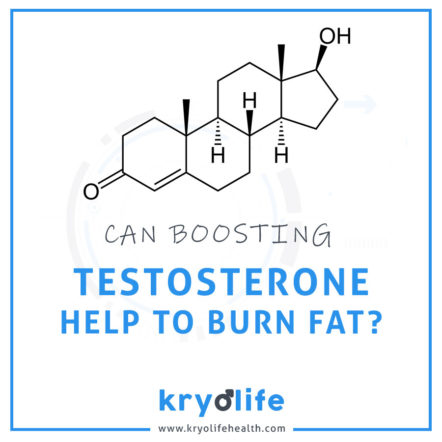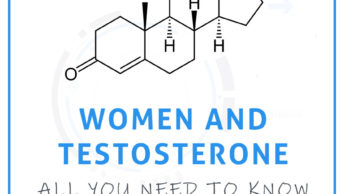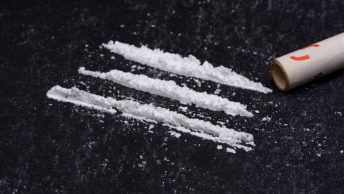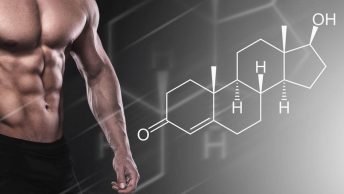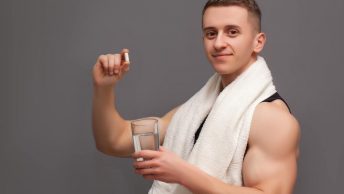Quick summary
- Testosterone has fat-burning properties and is important for bodybuilders and athletes for muscle growth and development of sexual characteristics in males.
- Low testosterone levels can result in weight gain and obesity, but regular exercise and weight loss steps can reverse male hypogonadism.
- Testosterone can be increased through testosterone replacement therapy, androgenic and anabolic steroids, or natural testosterone boosters made of herbal products. Physical activities and stress-relieving activities like exercise, proper sleep, and meditation can also boost testosterone production.
Testosterone supplements and boosters1, found the grip in the market after the discovery of androgenic and anabolic effects of this hormone.
Of which one of the most amazing properties of testosterone is its ability to induce lipolysis or fat burning of adipose tissue.
This is usually the type of fat found under the belly, arms, thighs, love handles, etc.
Though there are several other functions for testosterone, fat trimming is very important, especially for bodybuilders because of this one property of the testosterone that contributes mainly towards the formation of cuttings.
Testosterone2, in general, promotes muscle growth in both genders and developmental of sexual characters in male.
However, a deeper understanding of this wonder hormone and its interaction with fat will help us fine-tune our diet, workout strategy, and other factors to boost the levels of testosterone.
In this article, we will exclusively discover the testosterone, its fat burning capability, the science behind it, and methods to promote it.
So, let’s jump into the topic.
Read more: Low Testosterone: Symptoms, Diagnosis, and Treatment
What is testosterone?
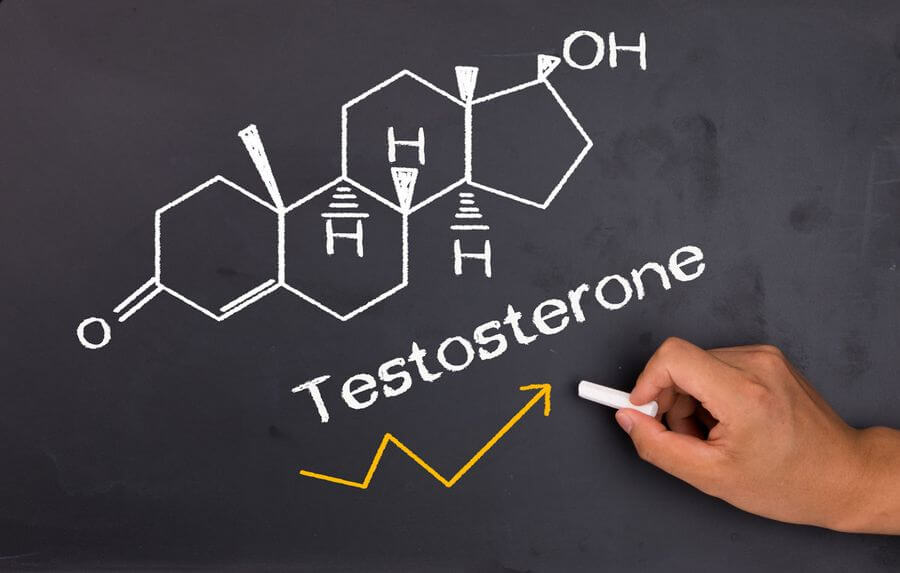
First of all, know what testosterone is and what it does.
Testosterone or ‘t-hormone’ is a male sex hormone produced by the testicles that take care of all sex characteristics and some metabolic functions.
It is also present in women, in smaller quantities, produced by the ovary.
Testosterone is usually secreted into the bloodstream and carried towards the target tissue, where cell surface hosts receptors specific to testosterone.
When the hormone binds to the receptor, a cascade of events is unchained, resulting in the production of various metabolites.
Testosterone is the reason why men develop muscular physique, facial & body hair, stronger bones, and overall ‘aggression.’
For males to stay fertile, a minimum level of testosterone is always required to be maintained, which also helps in maturation of sperm cells.
In both men and women, testosterone helps in muscle development and bone growth; however, the higher quantity in men might explain why males are more physically built than women.
Several studies have shown the effect of testosterone in weight loss, RBC production, and enhancing cognitive abilities.
Low testosterone = weight gain, why?
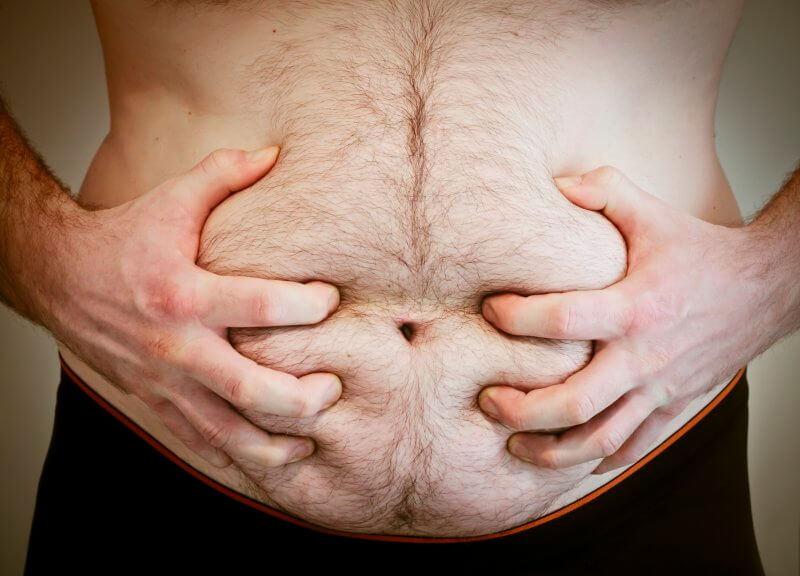
The fat-busting capabilities of testosterone are very popular and made it the center of attraction for supplement manufacturers.
A 2003 study published on endocrinology journal clearly showed the ability of testosterone in suppressing the fat formation.
At the same time, a 2010 study showed that men with low testosterone had gained weight more easily compared to controls who had healthy levels.
One reason why fat gets accumulated is because of the ‘sequence of macronutrient use’ according to which the body uses macronutrients in the following order: carbohydrate- fat -protein.
Carbs fall before fat, and the ratio of carbohydrate is generally high in our daily diet, are two other reasons why fat is stored while carbs are burned for instant energy requirements.
Also, muscle tissues have a higher need for calories such that people with muscles tend to burn extra calories thus storing less fat, while those who lack proper muscles would end up storing extra calories as fat.
How obvious is obesity for low T-hormone?
Weight gain over time can result in obesity, and reaching this far is bad news for obese men.
Studies have confirmed that obese men have 30% less testosterone than their normal weighted counterpart.
Statistics show that more than 70% of males with obesity has male hypogonadism at varying degree of severity.
But the good news is that regular exercise along with other weight loss steps can reverse male hypogonadism naturally provided the person doesn’t have any issues with testicles.
While the science hasn’t entirely debunked the obesity testosterone relation, the mechanism has been elucidated long back in 2002, according to which the belly fat secretes an enzyme called aromatase which can convert testosterone into estrogen (which is a female sex hormone).
When the levels of estrogen along with aromatase is higher, it suppresses the activity of ‘gonadotropin-releasing hormone (GRH).’
GRH is very crucial for pituitary glands to synthesize ‘luteinizing hormone,’ which helps in testosterone secretion.
So, in a nutshell, being obese suppress your testosterone activity.
Can boosting testosterone help you lose fat?
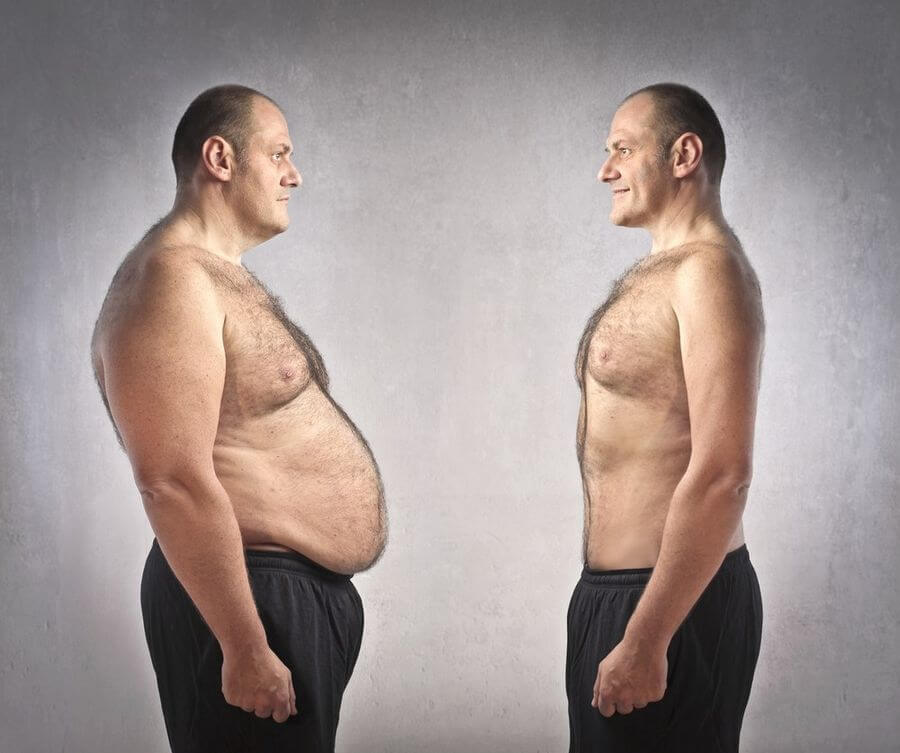
There are three ways to boost your testosterone, and they are:
Androgenic and anabolic steroids (AAS)
Androgenic means they help in the development of male sex characteristics, reproduction, and other effects invoked by testosterone.
Anabolic effects are those that help in the building of muscles, RBC production, fat trimming, etc.
Steroids are the common choice for bodybuilders because of superior anabolic activity.
Sometimes doctors also prescribe certain steroids for their androgenic properties.
However, from a long-term perspective, steroids are harmful to health and can cause many side effects upon persistent usage.
Keeping the illicit use aside, steroids are therapeutically prescribed by doctors to raise the testosterone levels in deficient men, which can restore several functions, including fat burning.
Though steroids can indirectly help in fat burning by raising testosterone, they are not a viable long-term solution.
Testosterone replacement therapy (TRT)
This might be the most preferred choice due to fewer side effects compared to that of steroids.
However, the cost might be a barrier for many.
TRT3 can be administered in various ways on a long-term perspective as an injection, patches, gel, cream, or even an implant.
There are many scientific shreds of evidence which suggests the relation between TRT and weight loss.
In a study with 100 obese men who received TRT and controlled diet were found to lose weight by 3 kg’s more compared to controls who didn’t receive any therapy but was on a controlled diet.
In the first group who received therapy had weight loss assisted by muscle growth while the second group had slight weight loss due to calorie burning but not significant as former.
However, studies are still ongoing to explore the relationship between weight loss and TRT on normal men.
Organic testosterone boosters
These are an emerging class of nutraceutical products that supplements testosterone by promoting natural biosynthesis.
They are mostly made up of herbal products and possess no threats to the user.
Some of the common ingredients in the list include ashwagandha, aspartate, Bioperine, horny goat weed, etc.
These herbal products or their mixture, raise the level of testosterone in the body, thus initiating muscle growth, fat burning, etc.
It’s established science that testosterone can reduce fat build-up, and with varying efficiency in testosterone biosynthesis, these natural supplements do help in fat burning but are yet to be conclusively proved.
Natural remedies to increase T-hormone
Boosting testosterone level is the most preferred strategy to get things back on track before you could think of TRT.
If you have time to spare, then going with some these natural remedies will ensure a safe restoration of the dwindling t-levels.
- Exercise: Undoubtedly, exercise is the first and foremost physical stimuli needed for the body to fix any ailment.
- Diet change: There are a bunch of foods like legumes, beans, oyster, tuna, red meat, etc. than can be distributed throughout your diet for increasing t-hormone.
- Supplementation: If food has proven to be insufficient to fuel your need, try natural supplements, especially for vitamin D, zinc, magnesium, etc.
- Proper sleep: Getting at least 6 ~9 hours sleep has proven to improve testosterone production.
- Meditation: Mind has to work in perfect harmony with the body to fix any issue, and that’s why meditation is very important.
Summing up
Studies support the finding that healthy levels of testosterone could aid the fat burning process.
People suffering from hypogonadism, after receiving ‘testosterone replacement therapy’ showed muscle growth assisted fat reduction.
So, there some pieces of evidence that elucidates the contribution of testosterone in the fat reduction process.
Bodybuilders use steroids for fat trimming in order to improve the appeal of their muscles.
Decreasing testosterone can be combated by TRT, steroids, or using natural supplements.
Physical activities and stress-relieving activities like meditation also boost testosterone production.
References
- Gruenewald, David A., and Alvin M. Matsumoto. “Testosterone supplementation therapy for older men: potential benefits and risks.” Journal of the American Geriatrics Society 51.1 (2003): 101-115. https://onlinelibrary.wiley.com/doi/abs/10.1034/j.1601-5215.2002.51018.x
- Mauras, Nelly, et al. “Testosterone deficiency in young men: marked alterations in whole body protein kinetics, strength, and adiposity.” The Journal of Clinical Endocrinology & Metabolism 83.6 (1998): 1886-1892. https://academic.oup.com/jcem/article-abstract/83/6/1886/2865200
- Rhoden, Ernani Luis, and Abraham Morgentaler. “Risks of testosterone-replacement therapy and recommendations for monitoring.” New England Journal of Medicine 350.5 (2004): 482-492. https://www.nejm.org/doi/full/10.1056/nejmra022251

